Walk this way
Editor's Note
The ancient Chinese created an agricultural solar system - still in use today - that is based upon their observation of crops, climate, astrology, and the study of animal and plant life cycles. The system guided farmers as to when to sow seeds and when to harvest them, and this system has now been in place for more than 2,000 years.
Today, with advances in science and technology, agriculture depends less on this ancient wisdom. But this seasonal calendar still operates as a reference guide for gourmands to seek out the best times for seasonal delicacies and for health experts to plan nutritious diets.
In a single year, the system features 24 "solar terms," each lasting one day and occurring every two weeks. Each has its own name and characteristics. The Global Times is presenting a weekly series examining which foods and delicacies are best enjoyed during these periods, as well as tips on preserving general health.
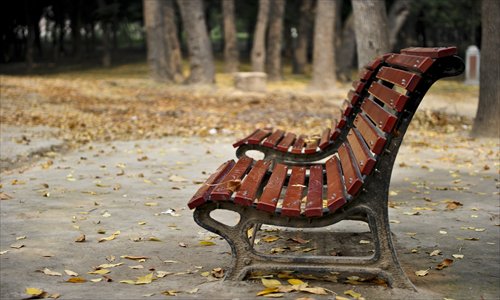
Shuangjiang, which falls on October 23 this year, is the last solar term in autumn, and is also the 18th solar term of the year. In line with the English name of shuangjiang, "frost's descent," it implies that during this period temperatures will experience a sharp decline with the differences in daily temperatures becoming larger. Moisture in the air begins to condense into dew during the night and that dew turns into frost by morning.
According to traditional Chinese medicine (TCM), because of the sudden appearance of cold air, cases of cardiovascular disease and chronic gastritis can easily trigger a relapse. In addition, this season also sees an increase in the incidence of coronary heart disease, angina and cerebral infarctions.
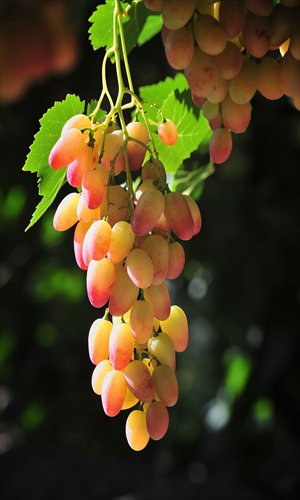
Strengthened immunity
Old people may also suffer in the overcast and cold weather, especially with osteoarthritis.
The Global Times has discovered a series of health measures, both in diet and exercise, that can help citizens make the journey from autumn to winter with a strengthened immune system.
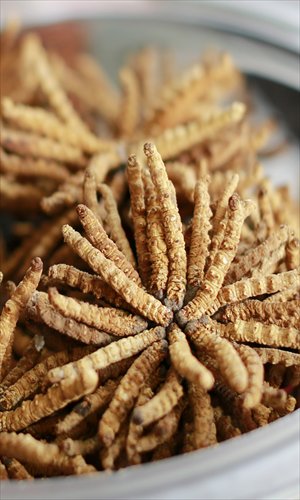
Shuangjiang is the ideal time to choose dishes with fresh ingredients which can nourish your body and also keep your stomach and spleen warm. There is a famous Chinese saying: "Eat flowers in spring and fruits in autumn." Fruits such as pears, apples, bananas and grapes can nourish the yin elements of the body and help rehydrate the lungs. It is also advisable to eat foods like radish, Chinese yam, walnut, honey and caterpillar fungus (dong chong xia cao) all of which have the effect of dispelling phlegm and relieving symptoms of coughs and asthma.
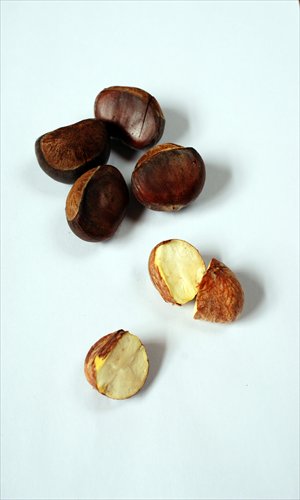
Chinese chestnuts are also a highly recommended food to eat during this period. Firstly, they are rich in carbohydrates, and are able to generate enough heat to keep the body warm. Secondly, they are a good source of vitamin C, which is an excellent tonic for helping to prevent colds. Thirdly, chestnuts contain high amounts of beta-carotene, vitamin B1, vitamin B2 and calcium, which are all helpful in combating cardiovascular problems such as high blood pressure and coronary heart disease.
During shuangjiang, it is advisable to take outdoor physical exercise, particularly endurance exercises such as jogging, aerobics and performing Tai Chi. These exercises encourage perspiration but without exhausting the body.
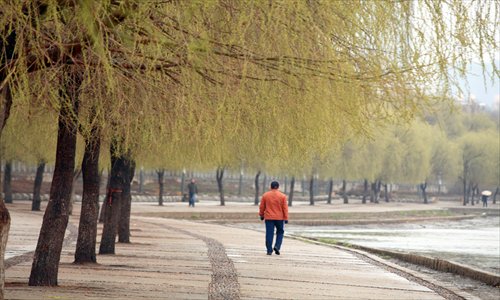
Improving balance
Walking or jogging backwards is also a good idea, because it exercises muscles which are usually neglected in our everyday lives. This will also improve blood circulation and improve balance in the body. Walking or jogging backwards will also exercise the mind in that it requires a certain amount of concentration. This can also help to allay anxiety and nervous dispositions.
For elderly people, or those new to walking backwards, it's advisable to place your hands on your waist with your thumb pointing back and your figures to the front; this will help to balance the body.
If you are more experienced at walking backwards, you can swing your arms and hands in time with your rhythm of walking.
At night, get into the habit of giving yourself a foot bath and massage after bathing. The whole process should last between 15 and 30 minutes which will help heat up the whole body.
At the same time, you should also massage your lower abdomen from time to time. For women, rubbing your lower abdomen and keeping it warm is beneficial for preventing certain gynecological disorders.